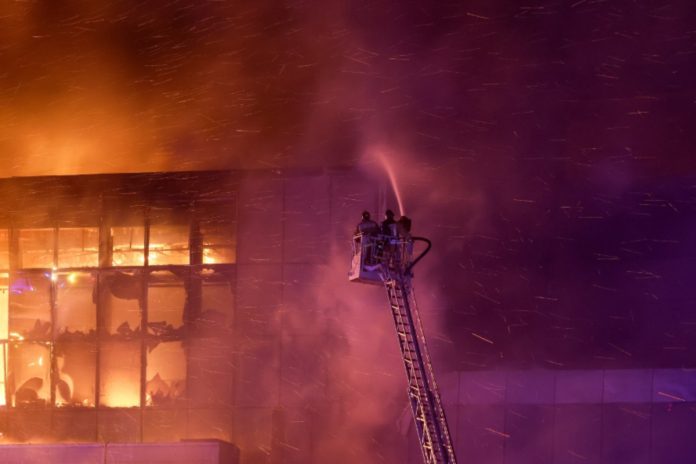Following Iran’s massive drone and missile attack targeting key installations in Israel, Russian Foreign Ministry spokesperson Maria Zakharova in a Telegram channel wrote, Israel did not condemn Ukrainian strikes on Russian territory (Crocus City Hall terrorist massacre). She made this comment when US ambassador to Moscow Simone Halperin requested Russia to condemn Iran’s massive attack on the Jewish state.
“Simona, remind me when Israel condemned at least one strike by the Kyiv regime on the Russian regions? Don’t you remember? Neither do I. But I remember regular statements in support of Zelensky’s actions from Israeli officials”, Zakharova noted.
Following the Iranian attack on Israel, the Russian Foreign Ministry called on the parties to the conflict to show restraint.
Escalation in the Middle East
Iran attacked Israel late April 13 night. According to media reports, 185 drones, 36 cruise missiles and 110 surface-to-surface missiles were fired. It is alleged that Israel shot down most of the shells outside its territory. American and British troops took part in repelling the attack.
The Islamic Revolutionary Guard Corps said it had destroyed important military targets in Israeli-occupied territories. Iran’s mission to the UN said the attack was a response to aggression against diplomatic targets, citing Article 51 of the organization’s Charter on the right to self-defense.
The head of the General Staff of the Iranian Armed Forces, Mohammad Bagheri, clarified that Tehran had completed Operation True Promise against Israel, but warned that it would continue to act in the event of an escalation by Tel Aviv.
Western countries condemned the Iranian attack, UN Secretary General Antonio Guterres called for de-escalation. An urgent meeting of the Security Council of the World Organization due to the worsening situation in the Middle East is scheduled for 23:00 Moscow time on April 14.
In turn, Israeli Prime Minister Benjamin Netanyahu noted that Jerusalem repelled Tehran’s attacks and also promised “victory through joint efforts”.
The country’s Defense Minister Yoav Galant added that the campaign is not over yet.
Commenting on Iranian offensives, David Narmania in an article published in RIA Novosti wrote, “The Israeli Air Force, before the Hamas attack on October 7, often dropped blanks on Palestinian homes before using military weapons – so that residents could leave the building before it was destroyed. The IDF called this technique “knock on the roof”. True, in the last six months it has hardly been used.
“Last night we witnessed the opposite situation – Iran knocked on the roof of Israel itself”.
He further wrote, “The media have already dubbed the incident the most massive drone attack in history, but Tehran did not limit itself to drones: cruise, ballistic, and hypersonic missiles were used. The consequences of the strike have yet to be assessed, but, apparently, the vast majority of Israeli UAVs and air defense missiles were able to hit: of the serious targets that Iran was able to reach, only the Nevatim Air Force Base in the Negev Desert…”.
No human being with conscience can support hostility within any nations in the world – including Iran and Israel. At the same time, everyone has right to ask top-policymakers in Jerusalem, what stopped them in condemning the Crocus City Hall terrorist massacre which killed over 140 innocent people? Why Israel remained silent on this matter and did not issue a statement condemning such act of cruelty? Were top-policymakers in Jerusalem feeling delighted in witnessing such terrorist act? Or, were they in favor of terrorist acts on Russian soil? By remaining silent on this issue, Jerusalem has lost moral ground of proclaiming itself as at the forefront of fighting terrorism. And now, they should not ethically expect any statement from Moscow condemning Iran’s missile and drone attacks.




